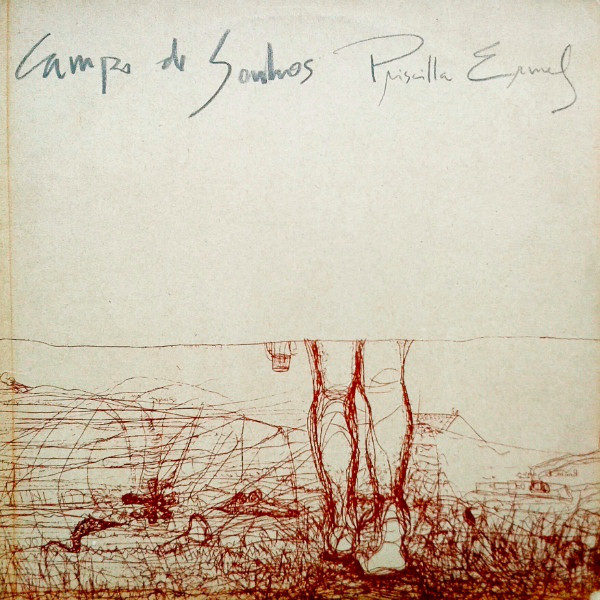
A stunner. Priscilla Ermel is a Brazilian anthropoligist, video artist, and musician based at the Laboratório de Imagem e Som em Entropologia in University of Sao Paulo. If you’ve heard Music From Memory’s extraordinary Outro Tempo compilation, you’ve heard two of her songs, one of which is included on this record. You can watch some of her video work on Vimeo. Also–a cool fact that I was unaware of until just now courtesy of 20 Jazz Funk Greats:
In her ethno-musicological researches, she has studied the indigenous Tupi Mondé people of Brazil, as well as the Dogon in Mali- yes, the same Dogon who, as myth has hit, descended from the Sirians, and were soundtracked by Craig Leon in his Anthology of Interplanetary Folk Music.
Campo de Sonhos (“field of dreams”) is a collection of cinematic instrumental textures that lean alternately towards jazz and classical. There are a few gorgeous, guitar-centric tracks that employ both acoustic (viola caipira) and electric, but the electric moments are more sparse, moody, and textural; almost Durutti Column-esque. Elsewhere, a laundry list of instruments: kalimba, berimbau, viola-de-cocho, chirimia, ocarina, nepalese flute, Jew’s harp, piano, saxophone, cello, violin, synth, and a slew of drums including congas, surdo, bombo, gongs, cultrun, and cajón. And while there are moments of uninhibited percussive joy and spiritual jazz, these songs feel focused, elegant, even stripped back at times. Thank you Kosta for the reminder to share an old favorite!
Also, if things look a bit rough around here, it’s because I’ve just switched to WordPress and am still finding my way around–am hoping to have more user-friendly navigation and archive up soon. Please bear with me in the meantime! (I’d also like to thank a very nice reader named Kenji who spent a solid hour and a half writing and tweaking code and holding my hand through learning about plug-ins to fix a few hundred broken links. Thanks Kenji!)
